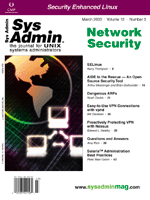
Figure 1 Changes to the default config file
*** vpnd.conf Tue May 21 23:51:44 2002 --- vpnd.conf-extclient Sun Dec 1 14:02:41 2002 *************** *** 10,42 **** --- 10,44 ---- # general parameters # --------------------------------------------------- # # pidfile <pathname-of-file> # # optional, file where pid of vpnd is stored, if not # given no file is used, file is deleted when daemon # terminates # # example: pidfile /var/run/vpnd.pid + pidfile /var/run/vpnds1.pid # # randomdev <random-number-device-file> # # optional, source of random data, default is /dev/random # which may block if insufficient entropy is available so # you may decide to use /dev/urandom instead which should # be safe enough but does not block, # note that for Linux 1.x system you may have to start # the supplied randomd daemon if you don't have a good # random number source, in this case your random device # is /dev/randomd # # example: randomdev /dev/urandom + randomdev /dev/urandom *************** *** 51,80 **** --- 53,84 ---- # example: keyttl 30 # # keepalive [<time-in-seconds>] # # optional, when given pings peer every n seconds where n is # the optional time in seconds parameter, if parameter is not # given default to ping every second, if keepalive is not given # default is not to ping, ignored if keysize is 0 (no ping) # # example: keepalive 2 + keepalive 20 # # noanswer <packet-amount> # # optional, amount of idle ping packets in serial line # mode after which the line will be dropped if there # is no ping reply, works only, if keepalive option # is given, default is to drop line after 10 unanswered # packets # # example: noanswer 3 + noanswer 6 *************** *** 115,185 **** --- 119,194 ---- # general parameters (available with version 1.0.4) # --------------------------------------------------- # # linkup <process-pathname> # # optional, full pathname of (hashed) process # which is called asynchonously when the vpn # link is established # # example: linkup /etc/vpnd.linkup + linkup /etc/vpnd/romeoffice-up # # linkdown <process-pathname> # # optional, full pathname of (hashed) process # which is called asynchonously when the vpn # link is terminated # # example: linkdown /etc/vpnd.linkdown # # --------------------------------------------------- # basic operation mode # --------------------------------------------------- # # mode client|server # # mandatory, selects client or server mode # # example: mode client + mode client # # client <ip>|<device-file> [<port>] # # mandatory, defines client device file or ip, in case of # client ip (host name may be given if the -l command line parameter # is used) client port number may be given (default is any port), # if mode is server and client ip is 0.0.0.0 no peer ip check is done, # if client is device file device file must be located in /dev, # if ip, server must be ip, if device, server must be device, # note that ip in example below is deliberately wrong # # examples: client 393.405.5.55 2001 # client /dev/cua1 + client 0.0.0.0 0 # # server <ip|device-file> [<port>] # # mandatory, defines server device file or ip, in case # of server ip (host name may be given if the -l command line parameter # is used) server port number may be given (default port is 379), # if server device file device file must be located in /dev, # if ip, client must be ip, if device, client must be device, # note that ip in example below is deliberately wrong # # examples: server 327.526.4.27 2001 # server /dev/cua0 + server 262.5.4.3 24741 # # keyfile <shared-secret-file> # # optional, defines the pathname of the shared secret file which # must be created with the -m option of vpnd, if not given default # of /etc/vpnd.key is used # # example: keyfile /var/adm/mysecret.key + keyfile /etc/vpnd/vpnd.conf-server1 *************** *** 216,243 **** --- 225,254 ---- # SLIP parameters # --------------------------------------------------- # # local <ip> # # mandatory, defines local ip of encrypted network interface, # a host name may be given if the command line option -l is # used, note that ip in example below is deliberately wrong # # example: local 393.405.5.57 + local 10.0.12.1 # # remote <ip> # # mandatory, defines peer ip of encrypted network interface, # a host name may be given if the command line option -l is # used, note that ip in example below is deliberately wrong # # example: remote 327.526.4.25 + remote 10.0.12.2 |